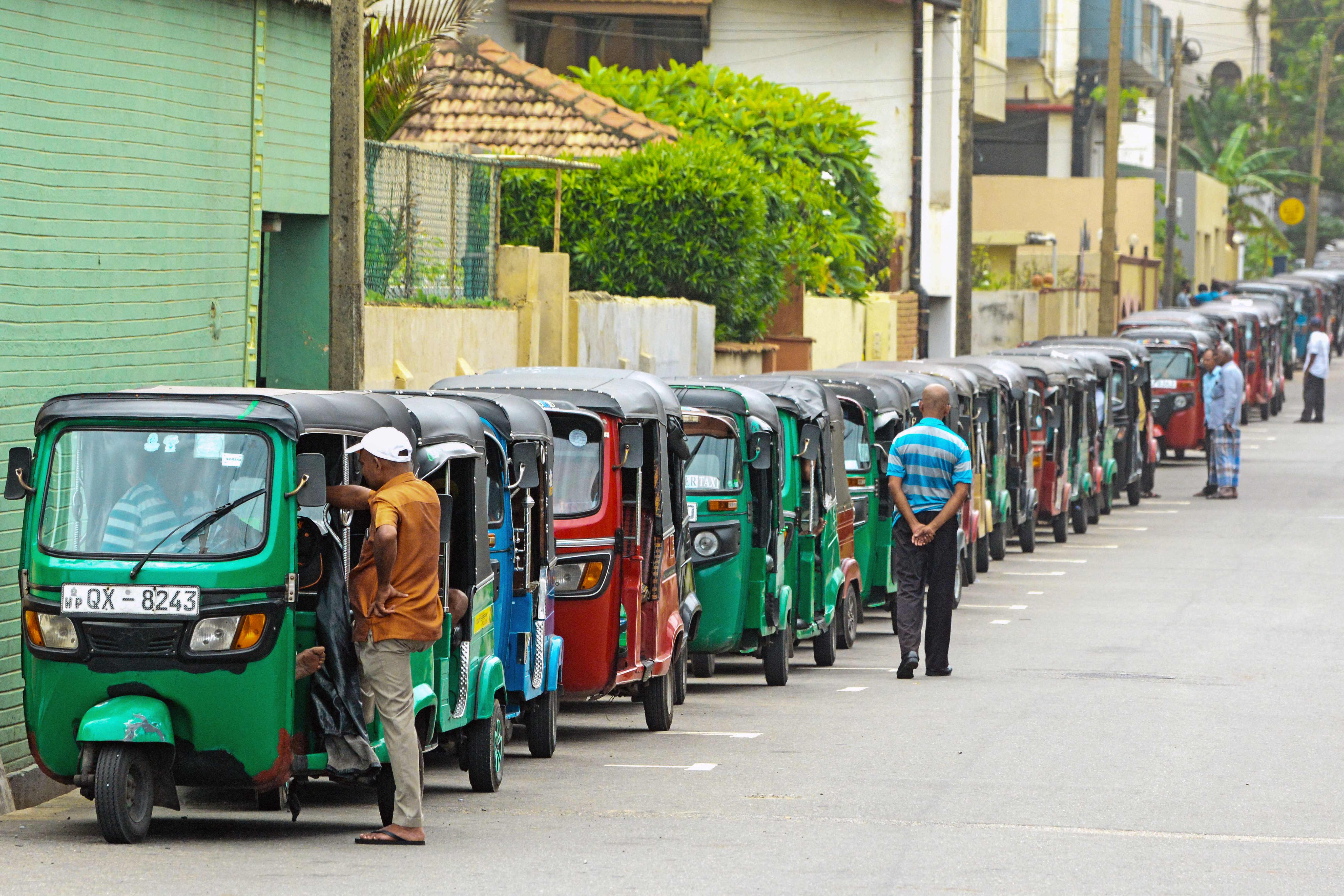Sri Lanka promises to stop printing money soon as inflation hits 60%
PM says negotiations with IMF ‘complicated’ as Sri Lanka is a ‘bankrupt country’

Sri Lanka, which is facing one of the worst economic crises in years with depleting foreign reserves, recorded the highest inflation in Asia amid plans to stop printing local currency to pay salaries.
Prime Minister Ranil Wickremesinghe said on Tuesday that the inflation rate is expected to reach 60 per cent. Printing local currency was an attempt at quashing what’s been called Asia’s fastest inflation.
Mr Wickremesinghe told parliament on Tuesday that Sri Lanka is going to present to the International Monetary Fund a plan to restructure its debt.
The country is unable to pay for fuel or import food items and medicines among other things due to the severe dollar crunch.
Sri Lanka also recently closed all public schools and offices through 10 July in an attempt to conserve fuel. Reports say that roads in the country are deserted as vehicles queue up in almost kilometre-long lines outside a few filling stations that still have some fuel left.
Sri Lanka defaulted on its external debt in April this year.
In an interview with Al Jazeera, 73-year-old newly appointed prime minister Mr Wickremesinghe said that he is confident he can turn the economy around.
“The year 2023 is going to be difficult, but by 2024 things should pick up,” Mr Wickremesinghe was quoted as saying.
He added: “I have confidence I can turn the economy around.”
In Sri Lanka, the consumer prices rose 54.6 per cent in June from a year earlier, with transport surging 128 per cent from the previous month and food 80 per cent amid acute shortages of crops and crude oil, it was reported.
The prime minister also said on Tuesday that Sri Lanka’s negotiations with the International Monetary Fund are more complex and difficult than in the past because it is a bankrupt nation.
“Our country has held talks with the IMF on many occasions before. But this time the situation is different from all those previous occasions. In the past, we have held discussions as a developing country,” Mr Wickremesinghe told the parliament.
“But now the situation is different. We are now participating in the negotiations as a bankrupt country. Therefore, we have to face a more difficult and complicated situation.”
Earlier last month, Mr Wickremesinghe had said that the government was targeting $5bn this year for repayments, plus a further $1bn to bolster the country’s reserves.






Join our commenting forum
Join thought-provoking conversations, follow other Independent readers and see their replies
Comments